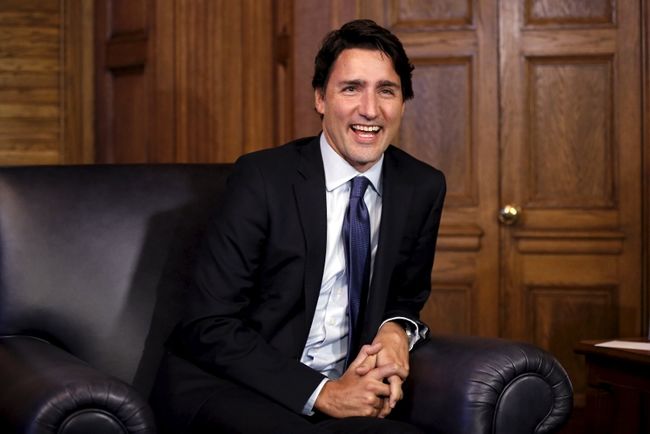The battle cry of electoral reform advocates declares "no party with 40% of the vote should exercise 100% of the power." Mainstream critics retort that electoral systems other than the one we currently use (the dreaded "first-past-the-post") tend to produce chaotically divided parliaments, allowing critical decisions to be made by the lunatic fringe. If 48% of the country votes right and 47% votes left, then in a perfectly proportionate system the balance of power will be held by whatever nonsense party gets the remaining 5% — the Australian Motoring Enthusiast Party, etc.
The trouble with this conventional debate is it ignores what makes Canada a distinctive country — namely the extreme power of our prime minister. The paradox of imposing any allegedly "fairer" voting system on Canada — ranked ballot or otherwise — is that it will do absolutely nothing to kill the "40% of the vote with 100% of the power" menace. If anything, it will make that menace much, much worse.
Electoral reform booster Andrew Coyne wrote a piece in the National Post the other day denouncing the idea that countries using non-"first-past-the-post" voting systems are all ungovernable "hellholes," prattling off a list of perfectly pleasant western European nations that use an alternate system without much hassle (the outliers, he says, are Italy and Israel, and we can safely hand-wave away their problems because of their unique "histories and political cultures").
But let's take a look at what percentage of the popular vote the "winning" party — that is, the political party whose leader got to become prime minister — won in a few of those places.
Germany is ruled by Christian Democrat leader Angela Merkel. Her party won 41.6% in the most recent German election. In Sweden, Social Democrat leader Stefan Löfven is in charge. His party won 31% of the vote. In Holland, the People's Party of Prime Minister Mark Rutte won 26%. In Belgium, the party of PM Charles Michel won a measly 9%.
This sort of thing is allowed to happen because more "proportional" electoral systems make it easier for small political parties to win seats in parliament, which in turn makes it difficult for any one party to win a majority of the popular vote — or seats in parliament. Governments must be forged from multi-party coalitions, which discourages the need to even try to win a majority of the popular vote, since your party's ability to gain power is thoroughly disconnected from it. A prime minister can wind up being a broadly unpopular politician who is nevertheless acceptable to the party bosses who negotiate the terms of the coalition deal. This might not matter much if the prime minister's office is incredibly weak and easily manipulated, but it would matter a great deal in Canada where our PM has enormous unilateral power over things like foreign policy and the Supreme Court.
It gets even worse with the ranked ballot-system, which forces voters to answer "who should run the country" through an artificial gradient, as opposed to a more natural yes/no axis.
If I ask "should Donald Trump be president of the United States?" your instinctive answer will be yes or no. You have a sense he is either fit or unfit for the job. The ranked-ballot system, however, presumes everyone wants Donald Trump to be president on some level — we just vary by intensity.
Imagine a ballot asking you to rank the following candidates: Donald Trump, Hillary Clinton, and Gary Johnson. Anyone voting for Clinton or Johnson would be expected to vote (that is, rank) Trump as well, and even if most voters collectively gave more "first votes" to Johnson or Clinton, if a majority put Trump in second place, he could still wind up in the Oval Office.
There's a circular logic to the ranked ballot system that makes it impossible to criticize: since everyone is forced to vote for everyone, every winning candidate can always be said to have "majority support." You might think that ranking someone in sixth place isn't much of an endorsement, but you're still supposed to be happy if your sixth place choice wins. I mean, better than seventh place choice, right? The system literally won't take no for an answer.
Imposing a new electoral system isn't merely a thought exercise or math problem. It's a sweeping constitutional change capable of wiping out 150 years of everything we know and expect about how power is gained, lost, and exercised in this country. The question to be asked is for whose benefit this will happen. I can assure you it's not the voters.
Photo Credit: Niagara Falls Reviews
Written by J.J McCullough









